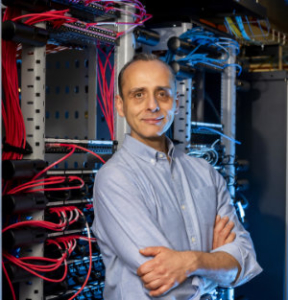Machina Sapiens: How Machines Became Intelligent Without Thinking in a Human Way
Can machines “think”? This unsettling question, posed by Alan Turing in 1950, has perhaps found an answer: today we can converse with a computer often without being able to distinguish it from a human being. New conversational intelligent agents have turned out to be capable of also carrying out tasks that go far beyond the initial intentions of their creators, and we still don’t know why: if they were trained for some skills, others emerged spontaneously as they read thousands of books and millions of web pages. A renewed focus on theory might be appropriate at this point.

Nello Cristianini
University of Bath, UK
Speaker’s Biography. Nello Cristianini is Professor of Artificial Intelligence at the University of Bath, specialising in Machine Learning. Before that he has worked at the University of Bristol, the University of California (Davis), the University of London (Royal Holloway). He has published several books on various aspects of AI and Machine Learning. Cristianini has a degree in Physics from the University of Trieste, an MSc in Computational Intelligence from the University of London, and a PhD from the University of Bristol.
Quantum Technologies: Dream or Reality?
Quantum Technologies promise to impact science and business. They would do so with new computational paradigms to speedup simulation of quantum physics, hence, for example, changing the way we discover materials; but also, with methods to secure communications, sense physical quantities like gravity, and finally with new protocols to distribute information. There is capital and excitement in quantum technologies, even if their timeline is uncertain. Avoiding futurology as much as possible, in this presentation we will discuss the present and near future trajectory of the field, its opportunities and its risks.

Simone Severini
Amazon
Speaker’s Biography. Based in Seattle, Simone Severini started and manages the Quantum Technologies division of Amazon Web Services (AWS). As a Professor of Physics of Information at University College London (UCL), he initiated university-industry collaborations with enterprises like Google, Lockheed Martin, and Siemens. He helped founding some of the first Quantum Computing startups in the world, including Quantinuum (formerly Cambridge Quantum Computing) and PhaseCraft. He served as an expert for research organizations and funding agencies including the Oak Ridge National Lab (ORNL), the National Science & Engineering Research Council of Canada (NSERC), and for some of the largest venture capitals worldwide. While at AWS, he lanched Amazon Braket, the first service that integrates in the cloud prototypes of quantum processors. He contributed to found the AWS Center for Quantum Computing, in partnership with Caltech, and the AWS Center for Quantum Networking, in partnership with Harvard University.
Modelling and Generating Data via Deep Probabilistic Representations
One of the key lessons to take away from contemporary machine learning is that flexible models offer the best predictive performance. This has implications in many situations. In this talk I will try to make this concrete by looking at a few constructions that we are working with. I will start with a (classical) classification task from ECG interpretation and then continue to the more under-researched area of how to formulate and solve regression problems using deep learning. There are currently several different approaches used for deep regression and there is still room for innovation. I will illustrate this landscape in general and introduce some of our developments consisting of a deep regression method which has a clear probabilistic interpretation. When it comes to generative models I will also share some insights related to diffusion models, in particular related to its use for image restoration. Besides sharing some of our findings for this particular problem I will also point out some more general aspects we came to realize in working on this.

Thomas Schön
Uppsala University, Sweden
Speaker’s Biography. Thomas B. Schön is the Beijer Professor of Artificial Intelligence in the Department of Information Technology at Uppsala University. He has held visiting positions with the University of Cambridge (UK), the University of Newcastle (Australia) and Universidad Técnica Federico Santa Maria (Valparaiso, Chile). In 2018, he was elected to The Royal Swedish Academy of Engineering Sciences (IVA) and The Royal Society of Sciences at Uppsala. He received the Tage Erlander prize for natural sciences and technology in 2017 and the Arnberg prize in 2016, both awarded by the Royal Swedish Academy of Sciences (KVA). He received the best teacher award at the Institute of Technology, Linköping University in 2009. He is a senior member of IEEE and a fellow of the ELLIS society.
Gala Dinner Speaker
Alfonso Farina: A Personal Journey in Radar Systems
The lecture will present a number of my professional endeavours throughout my life dedicated to the analysis, design, and development of a significant variety of radar systems, including plenty of personal anecdotes and feelings.

Alfonso Farina
President of the Leonardo Radar & Sensors Academy, President of the Underwater and Sensors Systems of the Leonardo Electronics Division
Speaker’s Biography. Alfonso Farina received the Dr. Ing. degree in electronic engineering from the University of Rome La Sapienza, Rome, Italy, and a PhD HC in ICT from the University of Palermo, Palermo, Italy. From 1973 to 2014, he worked at Selex ES until he became Senior Vice President (SVP) and Chief Technology Officer (CTO). Currently, he is President of the Leonardo Radar & Sensors Academy and President of the Underwater and Sensors Systems of the Leonardo Electronics Division.
Alfonso is a Fellow of IEEE, IET, Royal Academy of Engineering, Académico Correspondiente de la Real Academia de Ingeniería de España, European Academy of Science, and National Academy of Engineering (USA). Dr. Farina was a recipient of the Fred Nathanson Memorial Radar Award (1987), Finmeccanica Award for Innovation Technology (2004), IEEE Dennis J. Picard Medal for Radar Technologies and Applications (2010), Oscar Masi Award (2012), IET Achievement Medal (2014), IEEE SPS Industrial Leader Award (2017), Christian Hülsmeyer Award (2019), and IEEE AESS Pioneer Award (2020). His main best paper awards include the M. Barry Carlton of IEEE Transactions on Aerospace and Electronic Systems (2001, 2003, and 2013), the IET Proceedings on Radar Sonar and Navigation (2009–2010), and the International Conference on Fusion (2005).
A multifaceted engineer, scientist, and university professor, he is among the 2% top world scientists and one of the world’s leading experts on radar systems.




